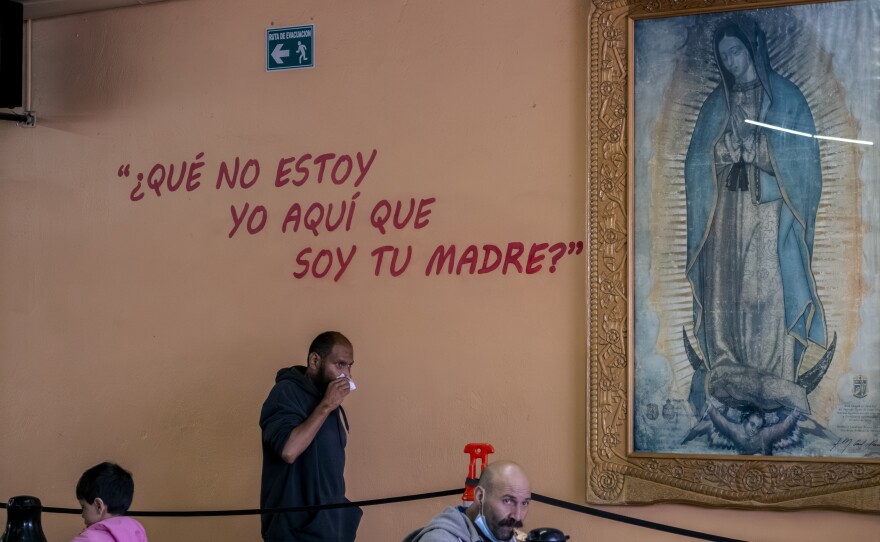Before the pandemic, so many Americans volunteered at a Tijuana soup kitchen and shelter called Proyecto Salesiano that staff struggled to keep the schedule in order.
“We had so many groups that we were constantly double-booked,” said Claudia Portela, the shelter’s manager.
She described an online calendar that tracked each group of volunteers with a different color. Today, that calendar is mostly blank.
“No one is coming,” she said.
It’s been that way since the pandemic. Volunteers and donations are half of what they were before COVID-19.
Unless the organization gets more financial support, they will have to close the migrant shelter for women and children within a month.
“If we don’t raise enough money, we will have to close,” said Father Agustin Novoa, director of Proyecto Salesiano.
A combination of dwindling philanthropic support, rising costs due to inflation, and above-average migration are all contributing to the shelter’s current situation.

On top of that, a few of the organization’s key donors died during the pandemic, Novoa added.
Among the most pressing needs is money for the shelter’s monthly gas and water bills.
“Every basic cost of living, everything has increased significantly,” Novoa said. “So of course, all of the shelters are feeling it.”
Proyecto Salesiano has been around for 37 years. Their flagship program is a free soup kitchen that serves between 800 and 1,000 meals each day.
The local government provides some support, mostly in the form of rice and beans. But proteins, milk and other goods are covered by donations.
In addition to the soup kitchen, the organization provides Tijuana’s migrant and homeless population with access to showers, medicine and some legal aid.
The shelter has survived multiple increases in migration, like the influx of Haitian migrants in 2015 and the Central American migrant caravan in 2017.
Novoa said people often ask why he doesn’t just shut it down to avoid the constant headache of trying to keep the doors open.
“It’d be very easy to wash our hands of this, it’d be very easy to look away from the misery, away from the poverty,” he said. “But we can’t. As human beings, we can’t walk away.”
Novoa and Portela convened a press conference Tuesday morning. It was their last-ditch effort to shed light on their financial situation.
Shelters throughout the city mostly live off donations, so they are in a similar situation. They have been overcrowded and underfunded since 2020.











